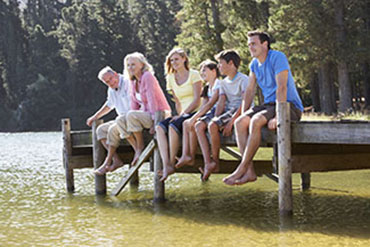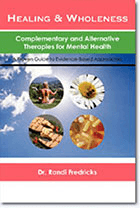 It wasn’t long ago that many Americans took vacations and looked forward to them. Summer sojourns were very common — road trips, in particular. Swarms of families would take long driving excursions to the Grand Canyon, the Grand Tetons, Yellowstone, and Yosemite. These vacations frequently included several destinations and lasted at least a week, sometimes two.
It wasn’t long ago that many Americans took vacations and looked forward to them. Summer sojourns were very common — road trips, in particular. Swarms of families would take long driving excursions to the Grand Canyon, the Grand Tetons, Yellowstone, and Yosemite. These vacations frequently included several destinations and lasted at least a week, sometimes two.
For whatever reasons, perhaps more economic than anything else, fewer American workers are taking their vacation time. The 2008 Great Recession was nearly a depression and its after-effects lasted for years when the official economic downturn ended. The recession around the year 2001 wasn’t nearly as severe, but having two economic declines in a row didn’t help us Americans feel comfortable in taking time off.
In fact, there has been some research conducted demonstrating that too many American workers are not taking off the time they need to relax and rejuvenate. A survey conducted by Kimble of 1,200 full-time employees who work for companies offering paid vacation time generated some concerning insights. One was that about 47% had not used their full vacation time last year. Slightly over 20% had more than five days of vacation banked. Some of the reasons for these behaviors identified by the survey were:
- Having too much work to complete to take time off (27%)
- Feeling pressured by an employer or manager not to take time off (19%)
- Fearing there will be too much work after returning (13%)
Even for the ones who said they did take some vacation time, there were some significant issues. Almost half said they check in on work while on vacation — almost 20% said they do this every day. Nearly 30% said they do so periodically. In a sense, these choices defeat the purpose of going on vacation.
Some of the beliefs the surveyed employees had which contributed to such vacation-related attitudes and behaviors were:
- Believing that not taking time off would be good for their careers (14%)
- Believing that giving up vacation time for a year would be right to get a promotion (19%)
Some of the more unfortunate insights were that about 7% were nervous their vacation requests would not be approved and 29% were expected to be on call for emergencies. Employers themselves can inadvertently contribute to employee expectations and fears about vacation time by the kind of company cultures they have.
Broadly speaking, company culture is a combination of values, communication styles, management styles, discourse, organizational structure, roles, objectives, strategy, goals and products or services.
The results of a single survey perhaps are not all that meaningful in identifying a larger trend for tens of millions of American workers. However, a prior study of 7,000 America workers called Project: Time Off’s 2017 State of American Vacation report found that 43% said they didn’t take time off because they were afraid of how much work they would return to when it was over — the same fear identified by the Kimble survey, though in this case far more reported it. Also mentioned in the report from this larger survey, was the fact about 32% said they could not afford a vacation.
While taking vacations may seem trivial or unnecessary, not taking time off from work could be hazardous to one’s health. A research study published in Psychosomatic Medicine concluded that the frequency of annual vacations by middle-aged men at high risk for coronary heart disease (CHD) is associated with a reduced risk of all-cause mortality and, more specifically, mortality attributed to CHD. Vacationing may be good for your health.
In other words, middle-aged men with a high risk for coronary heart disease in the study had a lower risk of mortality if they took annual vacations. Vacations are important because they not only replenish the mind, they also reduce the physical effects of stress on the body. The most important thing is that it becomes regular and you don’t start skipping. The major negative effects have been shown for people who don’t take a vacation for several years.
It appears that vacations today are not just getting away from work. It may also be helpful to completely unplug from all electronic devices, including the Internet, to reap the benefits of getting away from it all. So, while we are on vacation it will probably be helpful to some of us to stay away from the disturbing news, or any news for a brief period if we want the full health benefits of getting away from it all.
To sum up, vacations today are not what they were even thirty years ago. We not only need to get away from the workplace, it is important to have the intention to relax, rest and sleep because doing so is essential for our health. Everyone can afford to take some time off each year, and it isn’t necessary to travel to exotic destinations. Additionally, we may benefit from taking ‘media vacations’ — deliberately reducing our screen time or eliminating it for a while.
Randi Fredricks, Ph.D.

References
Kimble. (2018). No Vacation Nation: American Workers Are Overworked, Under Pressure And Not Taking Time Off. Retrieved June 20. 2020.
Blank C, Gatterer K, Leichtfried V, Pollhammer D, Mair-Raggautz M, Duschek S, Humpeler E, Schobersberger W. 2018). Short Vacation Improves Stress-Level and Well-Being in German-Speaking Middle-Managers-A Randomized Controlled Trial. Int J Environ Res Public Health. Jan 13;15(1).
Moliterno DJ. (2017). One Man’s Vacation, Another Man’s Stress Test. JACC Cardiovasc Interv. Oct 23;10(20):2133-2134.
de Bloom J, Geurts SA, Kompier MA. (2012). Effects of short vacations, vacation activities and experiences on employee health and well-being. Stress Health. 2012 Oct;28(4):305-18.
Reading Recommendations
 To learn more about natural therapeutic ways to help relieve stress, check out Dr. Fredricks’ book Healing and Wholeness: Complimentary and Alternative Therapies for Mental Health. It’s a comprehensive overview of complementary and alternative medicine (CAM) treatments for mental health, with information and research on their effectiveness for treating specific disorders.
To learn more about natural therapeutic ways to help relieve stress, check out Dr. Fredricks’ book Healing and Wholeness: Complimentary and Alternative Therapies for Mental Health. It’s a comprehensive overview of complementary and alternative medicine (CAM) treatments for mental health, with information and research on their effectiveness for treating specific disorders.
Twenty-two chapters document research and psychology books and the current practice of CAM in treating psychiatric disorders. The therapies covered are both state-of-the-art and ancient, including naturopathy, psychotherapy, hypnotherapy, nutritional therapy, herbal medicine, meditation, and other CAM therapies.

